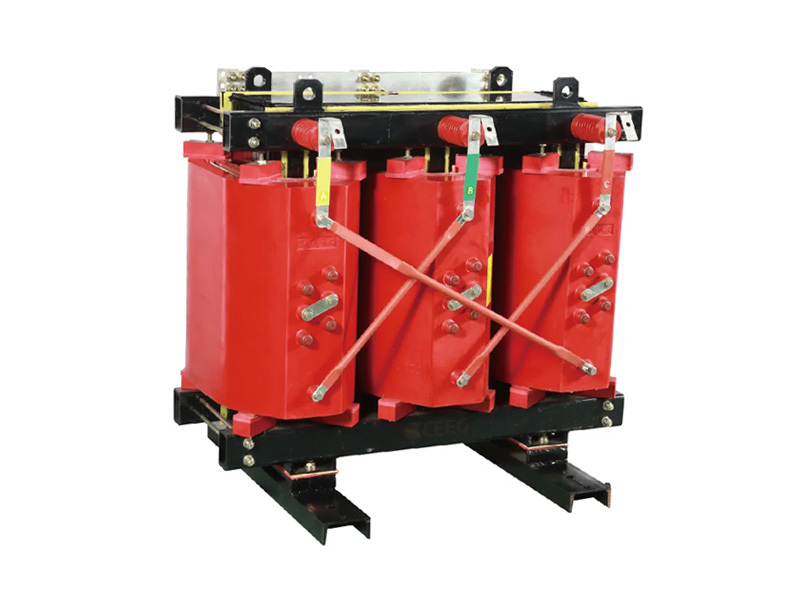He' Nan Chineng Electric Power Equipment Co., Ltd
The Advantages of Using Resin Insulated Dry Transformers in Industrial Applications
May 05,2025
The Advantages of Using Resin Insulated Dry Transformers in Industrial Applications
As industries evolve, the demand for efficient and reliable electrical systems has never been more crucial. Among the key components that facilitate this efficiency are transformers, particularly resin insulated dry transformers. This article delves into the myriad advantages these transformers offer in industrial applications, emphasizing why they are becoming the preferred choice for many sectors.
Understanding Resin Insulated Dry Transformers
Before we dive into the advantages, it’s essential to understand what resin insulated dry transformers are. Unlike traditional transformers that use oil for insulation and cooling, resin insulated dry transformers utilize a solid epoxy resin for insulation. This innovative design not only enhances the safety and performance of the transformer but also aligns with environmental sustainability.
Key Features of Resin Insulated Dry Transformers
Resin insulated dry transformers are characterized by several critical features that distinguish them from their oil-filled counterparts:
- Solid Insulation: The resin provides excellent dielectric strength and thermal resistance.
- Compact Design: Their smaller footprint allows for easier installation in space-constrained environments.
- Low Maintenance: The absence of oil eliminates the risks associated with leakage and reduces maintenance requirements.
- Fire Resistance: The resin material is inherently non-flammable, enhancing safety in industrial settings.
Advantages of Resin Insulated Dry Transformers in Industrial Applications
1. Enhanced Safety Features
Safety is a paramount concern in any industrial setup. Resin insulated dry transformers offer a significant safety advantage over oil-filled transformers:
- Non-Flammable Material: The solid insulation used in these transformers is non-flammable, minimizing fire hazards.
- Reduced Risk of Leakage: As there is no oil component, the risk of leakage, which can lead to environmental contamination, is virtually eliminated.
2. Environmental Sustainability
With increasing emphasis on sustainability, industries are seeking solutions that minimize environmental impact. Resin insulated dry transformers support this goal in several ways:
- No Oil Usage: The absence of oil reduces the risk of spills and contamination.
- Recyclable Materials: The epoxy resin can be recycled, aligning with eco-friendly practices.
- Lower Carbon Footprint: Their energy-efficient operation contributes to reduced overall carbon emissions.
3. Cost-Effectiveness
Investing in resin insulated dry transformers can lead to significant cost savings for industries over time:
- Lower Maintenance Costs: With no need for regular oil checks or replacements, maintenance costs are significantly reduced.
- Energy Efficiency: Their efficient performance often results in lower energy bills, contributing to long-term savings.
- Extended Lifespan: The durability and resilience of resin insulated transformers can lead to a longer operational lifespan, deferring replacement costs.
4. Versatility and Application Scope
Resin insulated dry transformers are versatile and can be effectively used in various industrial applications:
- Manufacturing Plants: Ideal for powering machinery in environments with high safety standards.
- Commercial Buildings: Perfect for applications in urban settings where space is limited.
- Renewable Energy Systems: Suitable for solar and wind energy systems, optimizing their performance.
5. Superior Performance in Challenging Environments
Industrial applications often place transformers in challenging environments. Resin insulated dry transformers excel in such conditions:
- Humidity Resistance: Their design allows them to perform reliably in high-humidity environments without risk of insulation failure.
- Corrosion Resistance: These transformers are less susceptible to corrosion compared to traditional oil-filled variants.
Installation Considerations for Resin Insulated Dry Transformers
1. Space Efficiency
One of the most significant advantages of resin insulated dry transformers is their compact design. This feature allows for easier installation in locations where space is at a premium. Unlike oil-filled transformers, which require additional space for oil containment, resin insulated models can be installed in tighter spaces without compromising safety or performance.
2. Simplified Installation Process
The installation process for resin insulated dry transformers is straightforward, often requiring fewer specialized skills and tools. This ease of installation can lead to reduced labor costs and faster project completion times.
Maintenance of Resin Insulated Dry Transformers
Maintaining resin insulated dry transformers is considerably simpler compared to traditional transformers, thanks to their robust design:
- Visual Inspections: Regular visual inspections can help identify any potential issues early on.
- Periodic Testing: While maintenance is minimal, periodic electrical testing can ensure continued performance and safety.
Best Practices for Maintenance
To ensure the longevity and efficiency of resin insulated dry transformers, consider the following maintenance best practices:
- Regular Checks: Conduct regular checks of connections and terminals for signs of wear or corrosion.
- Environmental Monitoring: Monitor the surrounding environment for factors that could affect transformer performance, such as humidity levels.
FAQs about Resin Insulated Dry Transformers
1. What are the key differences between resin insulated dry transformers and oil-filled transformers?
Resin insulated dry transformers use solid epoxy for insulation, while oil-filled transformers rely on oil. This leads to differences in safety, environmental impact, and maintenance needs.
2. Can resin insulated dry transformers be used outdoors?
Yes, they can be used outdoors, but appropriate enclosures may be necessary to protect against environmental factors like UV radiation and extreme weather.
3. Are resin insulated dry transformers suitable for renewable energy applications?
Absolutely! Their efficiency and reliability make them ideal for use in solar and wind energy systems.
4. How do resin insulated dry transformers perform in high humidity environments?
These transformers are designed to perform well in high humidity, thanks to their robust insulation properties.
5. What maintenance is required for resin insulated dry transformers?
Maintenance is minimal but should include regular visual inspections and periodic electrical testing to ensure continued performance.
Conclusion
In conclusion, resin insulated dry transformers present a multitude of advantages for industrial applications, ranging from enhanced safety and environmental sustainability to cost-effectiveness and versatility. Their superior performance, particularly in challenging environments, positions them as a leading choice for modern industrial needs. As industries continue to prioritize efficiency and safety, the adoption of resin insulated dry transformers is likely to accelerate, paving the way for a more reliable and eco-friendly future in electrical systems.










